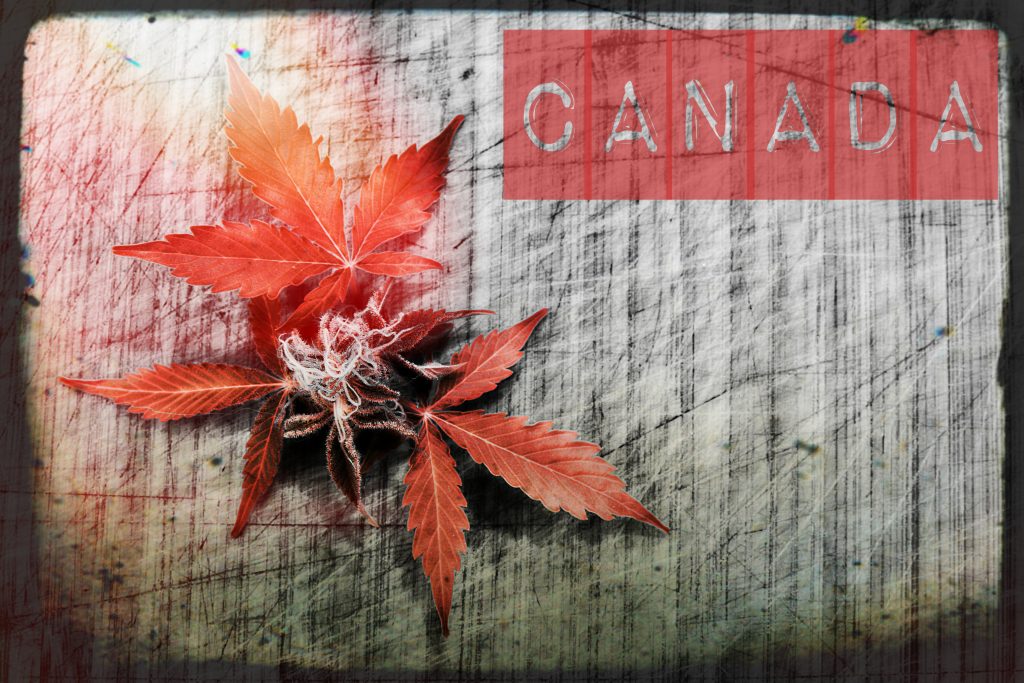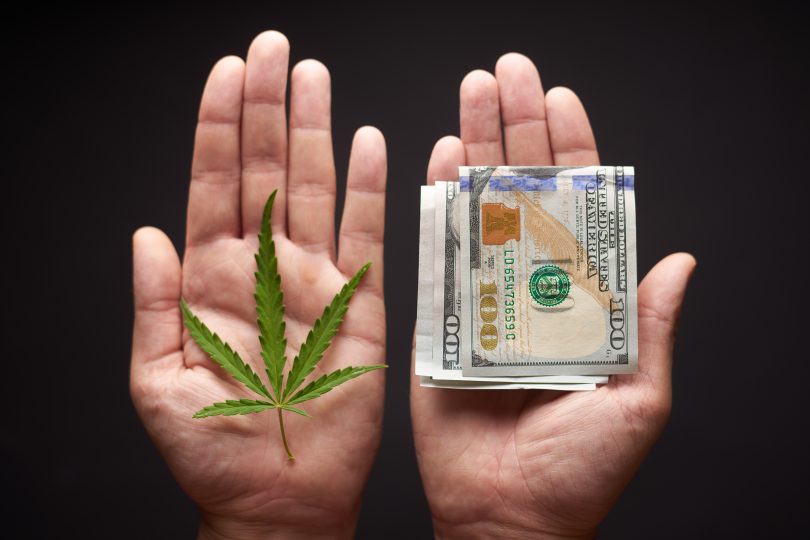Foreign investors are quietly buying up domestic cannabis businesses, turning mom-and-pop shops into corporately owned storefronts and cultivation centers. It’s happening in the United States, and all over the world. As global interest in cannabis legalization continues to rise, the potential for international trade and investment opportunities are growing right alongside it. Some of the largest cannabis companies in the world, most of which are from Canada, are establishing operations in different countries.
For example, publicly-traded Canadian company Canopy Growth now holds licenses to cultivate cannabis in Europe and South America (Denmark and Columbia, specifically). This is following a stint of operations in South Africa and Lesotho. And they’re not the only ones. Canadian companies both large and small are expanding globally. Aurora operates in 25 countries so far, Cronos Group has branches in 5 countries, Aphria is present in at least 10 countries that we know of, and numerous other small companies that you likely haven’t heard of, are buying cultivation and retail businesses across borders as well.
Growth and development is not always all it’s cracked up to be, however. Critics note a fear of “Big Cannabis” prevailing, or the highly corporatized business model that dominates most existing industries already – like tobacco, alcohol, and pharma. And this is certainly a valid concern, because with financial power comes the possibility for the big timers to buy or bully smaller business owners out of their properties, the ability to lobby governments, change existing regulations, dispute scientific studies in an effort to hide possible risks from consumers, and challenge public health measures in international trades courts for further economic gain.
The cannabis industry is clearly thriving, but sometimes, when growth happens too rapidly, that’s not always a good thing as it can lead to unsustainable situations. Regardless, we’re here to keep you up to date with all the latest stories and changes. We cover tons of topics in the emerging cannabis industry, and put out the THC Weekly Newsletter, so you can subscribe and keep up with everything going on. Plus, sign up and you’ll get some sweet deals on products like edibles, vapes, and other cannabis paraphernalia, including cannabinoid compounds.
Canadian companies looking stateside
I mentioned a handful of large companies above, but let’s take a closer look at some of those smaller transactions that often go unnoticed. Although there are many examples, I can think of two off the top of my head because I’m friends with the owners personally. They are Desert’s Finest and Fire & Flower (formerly known as 420 Oasis). Back in June 2019, Canadian cannabis investment company, Nabis Holdings, Inc., announced a purchase plan in which they would acquire 100% ownership of Desert’s Finest Dispensary in Desert Hot Springs, California. Interestingly, Nabis ended up backing out of the deal a year later, citing a “downturn” in California’s cannabis market, and instead deciding to buy Emerald Dispensary in Phoenix.
420 Oasis, another previously independently-owned and operated (female-owned, might I add) dispensary, was sold to Fire & Flower Holdings (based out of Toronto, Canada) in February 2021 for an undisclosed amount. When talking to consumers and skimming through online reviews, I see that the public is not happy about the change. Reasons noted include exaggerated prices, higher tax rates, less product variety, and lower quality flower.
The thing is, that the transition was done under wraps. I have noticed that most people shopping here have no idea the dispensary changed ownership (through no fault of their own, as Fire and Flower made it a point to keep that on the down low). Yelp reviews include comments like “Once, when it was 420 Oasis it was amazing. Great service, great concept, awesome products, fair prices. However now that it’s Fire & Flower it is the worst dispensary in town”, and “I’m so disappointed with the changes that have come along with the name change from 420 Oasis to Fire and Flower. Having been a VERY regular customer I can no longer be a part of this dispensary.”
Overall, you see this air of mystery, with people wondering why a simple name change resulted in so many other changes, but not realizing that this is essentially an entirely new dispensary, now part of chain with foreign ownership, that simply took over the 420 Oasis retail space and tried to build off their good reputation in the community.
A much bigger story
While most of the activity so far has been limited to Canadian companies entering legal U.S. markets, experts believe there is a way bigger story beneath the surface here. According to Jim Hagedorn, CEO at Miracle Grow, their goal is to stay on top of ALL newly developed legal markets.
“After months of work by an internal task force, we’ve created a process that will allow us to make nonequity investments in other entities that invest in cannabis brands and operations,” says Hagedorn. In fact, we’ve been in discussions with potential partners to bring this strategy to life and hope to see significant movement in the near future… Our evolving vision is to create the optionality to have an early mover advantage in the broader U.S. cannabis market when federal law allows.”

They’re positioning themselves to be ready for a soon-to-be legal industry, by already owning as much as they possibly can before cannabis prohibition even ends in the United States. As a business owner, naturally, that’s a smart move. But it does eventually cause a ripple effect that can be problematic in the long-term, for a handful of obvious reasons.
Similar to the idea of foreign investors and their contribution to the skyrocketing costs of housing, when already-wealthy companies and investors start purchasing and upgrading all the existing cannabis businesses, and they use their buying power to get products in bulk and pass on savings to customers (think Wal-Mart, in the event that this is actually happening, unlike at Fire & Flower), that creates a sort of economic bubble in the industry in which it’s impossible for small time business owners to compete. Not to mention, customers end up getting less personalized service from companies that have no ties to the community other than making a profit off them.
The Jamaican case study
Much of the purchasing focus has remained on already-established companies, mainly Canadian ones buying in the US; but what about the idea of truly getting in on the ground floor, by investing in emerging markets from developing nations? It’s a great plan for the investor, but these small businesses in less powerful countries are especially vulnerable to political and economic pressure from wealthy outsiders. This has been made evident with international alcohol, tobacco, and food/agricultural corporations coming in with big promises of financial growth, but instead, decimating lands and exploiting people for their own benefit.
Check out what’s been going on in Jamaica. Back in 2015, a legal market for medical cannabis was established under the Dangerous Drugs Amendment Act, which almost immediately attracted investors from Canada, the US, and Europe. A study was executed on the effects of these international business relations by conducting interviews with 22 “key informants” from the Jamaican government, local cannabis industry, academia, civil society, and official field observers who oversee operations of both legal and illegal cannabis cultivators in the country.
A common thread seemed to be that many interviewees described difficulties finding domestic investors, as well as a refusal from Jamaican banks to work with cannabis companies – a problem all too familiar in the US also. Many felt they had “no choice” (their exact words) but to partner with investors from other countries who, 1) already had capital, and 2) had access to financial services. This is why Canadian companies are leading the charge here.
Overall, the key informants stated that foreign investments were an “essential source of capital to finance the start-up costs of legal cannabis businesses”. Additionally, they claimed to prioritize investors with the “greatest financial resources, brand reputation and export networks”. They also looked for stakeholders who aligned with their individual business visions (for example, organic, earth-friendly, medial, recreational, niche, etc.).

As expected, there were issues with what interviewers described as “predatory” practices, in the form of unfair shareholder agreements and too much political interference. Some were concerned that investors were focusing on profits at the expense of public health and safety, which, sadly, is how most industries operate these days. And finally, there is a growing concern over the impact that foreign investment may have on the diversity of Jamaican landrace strains.
Protecting product quality and human health
The latter issue listed in the section above discussed fear over what changes investors would bring to traditional Jamaican cannabis stains. Because most consumers in the “Global North” prefer indoor-grown indica strains, there’s been a push to cultivate these same kind of strains in the Jamaican market. But in Jamaica, locals are accustomed to their tropical, outdoor-grown sativas and hybrids, and that’s what they prefer. These strains grow well in the island’s warm, humid climate.
Interviewees noted a “significant part” of legal cultivation space in Jamaica has been taken over by indoor facilities or climate-controlled greenhouses in order to produce foreign, THC-dominant indica strains. They were also worried that investors who focused on medicinal/CBD cannabis exports would push for more cultivation of hemp strains, and thus “squeeze out heirloom strains from the market” via less access to space and possible cross contamination.
Additionally, there are a few different talking points regarding public health impacts if foreign investment gets too big. On one side of the debate, there’s the possibility that more money could lead to better and safer products because, with more money, there is simply more ability to produce higher-quality goods. On the other side, it’s possible that foreign investment could lead to major oversight in the quality-control department as corporations rush to mass produce products that often end up being subpar (something that again, we sadly see too much of).
Final thoughts
My personal opinion is that this over-corporatization of nearly every industry that services us, is not a good thing. As we’ve seen time and time again, when things get too big, too fast, quality starts to suffer, and shady things start to happen, typically in the form of wealthy companies skirting various regulations. With investors spanning global borders to get their piece of this burgeoning industry, it wouldn’t be shocking to eventually see a lot less product and strain variety in the future. Basically, the entire global market will look like a California Weedmaps menu, run by ‘Big Cannabis’ corporate conglomerates.
Hello and welcome!! Thanks for joining us at CBDtesters.co/Cannadelics.com, your first choice for independent news coverage of the cannabis and psychedelics markets. Drop by frequently to stay up-to-date on the exciting landscape of cannabis and psychedelics, and subscribe to The THC Weekly Newsletter, to stay ahead on everything happening.









